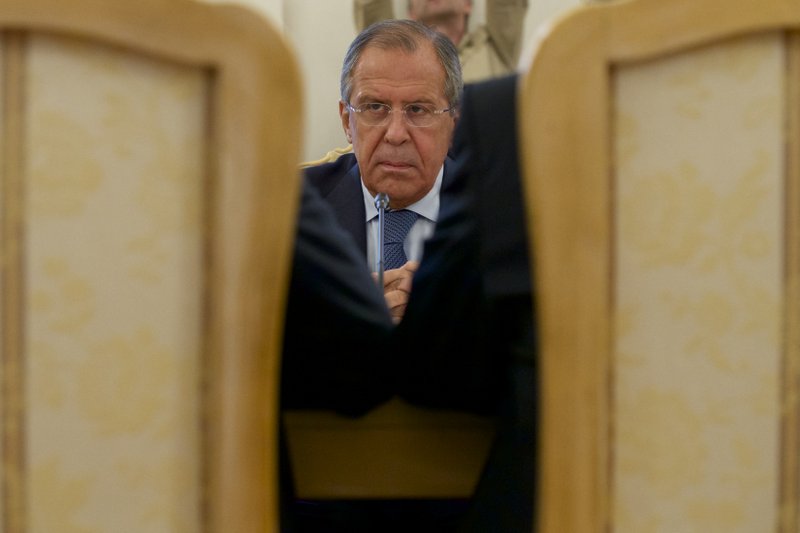JERUSALEM -- Russian troops have arrived in Syria to aid President Bashar Assad's beleaguered government in fighting Islamic State militants, Israel's defense minister said Thursday.
Moshe Yaalon said the Russians in recent days dispatched military advisers as well as an active force, with the main goal of setting up an air base. The base, near the Syrian city of Latakia, could deploy fighter jets and helicopters in strikes against Islamic State militants.
"As far as we understand, at this stage we are talking about a limited force that includes advisers, a security team and preparations for operating planes and combat helicopters," Yaalon said in a briefing with Israeli reporters.
The claim was the latest indication of a Russian military buildup in Syria that has raised U.S. and NATO concerns.
Since seizing nearly a third of Syria in 2014, the Islamic State has beset Assad's armed forces, which have also been fighting to quell a 5-year-old civil war with various rebel groups. Moscow has backed Assad throughout the nation's civil war, which has killed more than 250,000 people.
In a sign of international cooperation on the war in Syria, the United Nations Security Council on Thursday authorized an international investigative body that will, for the first time, be allowed to establish who is responsible for chemical attacks in Syria.
So far, the U.N. and the global chemical weapons watchdog, the Organization for the Prohibition of Chemical Weapons, were only able to investigate attacks without laying blame on the government or rebel groups.
No council member objected to a letter sent Thursday to Secretary-General Ban Ki-moon in support of the joint investigative mechanism. In a statement, Ban's spokesman welcomed the approval and stressed "the speedy establishment and full functioning" of the investigative body.
The letter is signed by Vitaly Churkin, the Russian ambassador and current council president, and authorizes Ban's recommendation that a three-member, independent panel be backed by experts with the freedom to go anywhere in Syria to identify those responsible for attacks.
The investigative body is expected to submit its first report within 90 days of being fully operational.
Syria's government denies using chemical weapons, but the United States and other Western nations contend it is to blame, especially for barrel bombs containing chlorine and other toxic agents dropped by helicopters. The opposition doesn't have aircraft.
Reports also have surfaced in recent months that the Islamic State group has used toxic chemicals.
Earlier Thursday, Russia's Foreign Minister Sergey Lavrov said Russian aircraft flying into Syria have been delivering weapons along with humanitarian supplies. He added that Russian servicemen are in the country to train the Syrians how to use the military hardware, but would not provide numbers or any other specifics.
Yaalon described the Russian move as "significant," and said that if the Russians plan on carrying out airstrikes against Islamic State militants, they would have to coordinate with a U.S.-led campaign.
The Israeli minister added that Russia's first goal is likely to protect its interests in Syria, namely the navy base of Tartus on the Mediterranean Sea. Yaalon did not elaborate on how Israel knew of the Russian deployment in Syria.
Pressed to comment on Russia's plans, Lavrov said "Russia isn't taking any additional steps" aside from helping train the Syrian military for now, but he held the door open for broader action.
"If it's necessary, we will act in full conformity with the Russian legislation, international law and our obligations, exclusively on the request and consent of the government of Syria and other countries of the region, if there is a talk about helping them fight terrorism," he said.
So far, two out of Syria's 14 provinces are entirely outside of government control: Idlib, which fell Wednesday to al-Qaida militants and other Islamic fighters, and Raqqa, which was seized in 2014 by the Islamic State. The Islamic State, also known by the acronym ISIS, has declared a caliphate on the territory it controls in Syria and Iraq.
On Thursday, the Britain-based Syrian Observatory for Human Rights reported that the Islamic State renewed assaults on the Deir el-Zour military base in eastern Syria and has seized a nearby missile facility.
The Observatory, which relies on activists in and near Syria, said that at least 36 militants were killed in the clashes, including a child who was one of two suicide bombers who opened the way for the group's advance toward the missile facility. The group said the government responded with airstrikes.
The Aamaq media outlet, which supports the Islamic State, said the group captured the site of a rocket battalion overnight, about a mile away from the Deir el-Zour military air base, after two suicide bombings that targeted soldiers guarding the area. Aamaq said dozens of soldiers were killed in the attack.
The government, however, said it foiled an "infiltration attempt" by the group and inflicted heavy losses on them. The official news agency said extremist fighters tried to sneak into the air base after detonating five explosives-packed vehicles at the eastern part of the facility.
Information for this article was contributed by Lynn Berry, Vladimir Isachenkov, Sarah El Deeb, Cara Anna, Albert Aji and Qassim Abdul-Zahra of The Associated Press.
A Section on 09/11/2015

